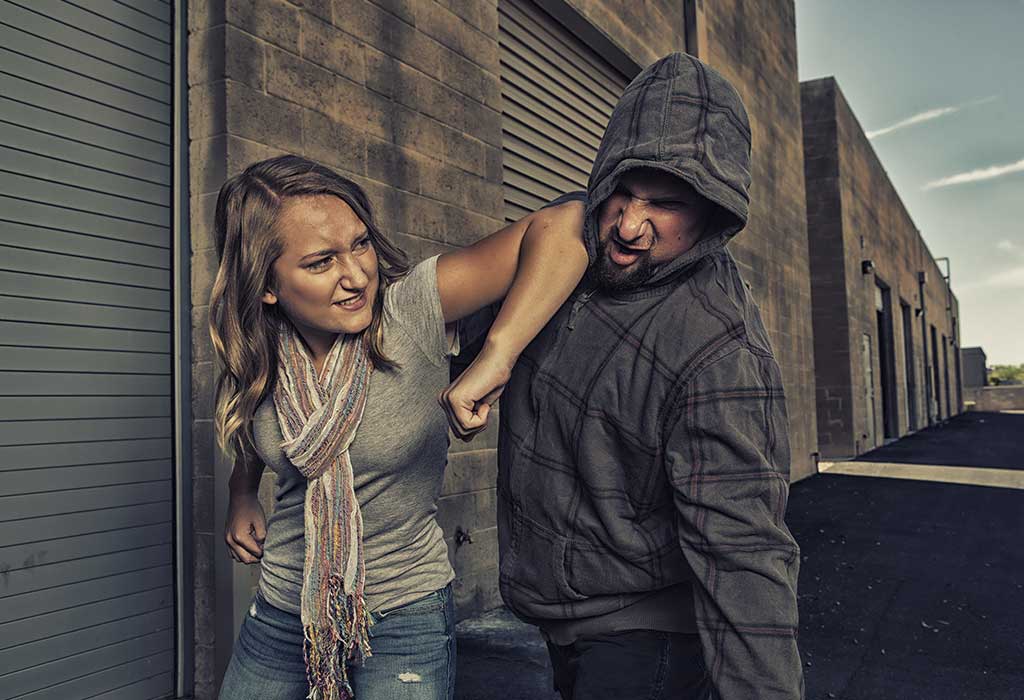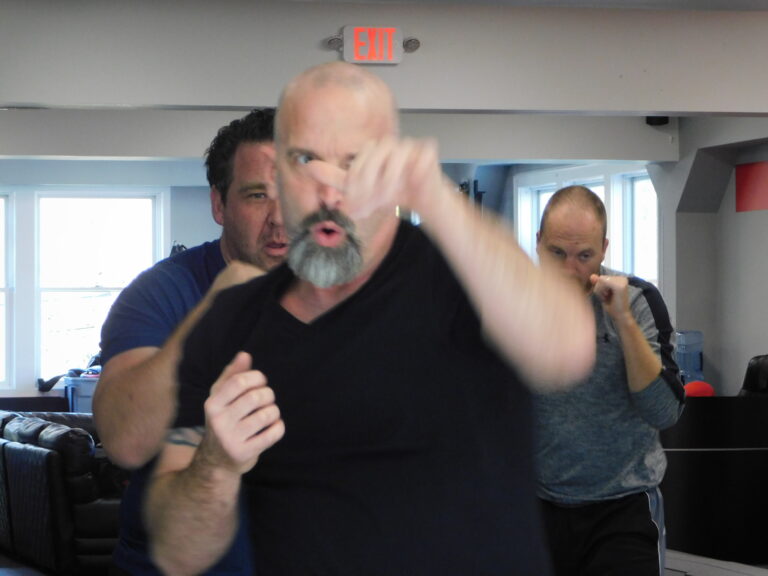There is a moment in everyone’s training when they realize that the knowledge and techniques they have acquired are formidable weapons against punks, bad guys and general no-goodniks. You’ve developed a real sense of empowerment that you can handle yourself if confronted by a would-be attacker and your mind is a bit more at ease when walking through parts of town that would otherwise have you considering alternate routes. Congratulations, the mission you set for yourself for being ready to deal with various unsettling and possibly dangerous situations is on its way to being accomplished!
My question to these newly empowered warriors is what will you do with these newly honed skills? Is the fact that you are now capable of handling yourself against a foe going to change you from someone who wanted to protect themselves if attacked, to someone who will step forth and clear the room of the unwanted? Will the entry of a loud, rude and possibley dangerous person into your surroundings suddenly activate the “Batman” signal overhead? The mindset you have at that moment will dictate the actions you take, so let’s discuss this a bit more…
Self defense is a process that starts well before the threat is in front of you. It begins with knowing when and where dangerous things take place and ensuring that you are not unnecessarily there. As I wrote in my “Effortless Self Defense” blog, “It is better to avoid than to run. It is better to run than to de-escalate. It is better to de-escalate than fight. It is better to fight than die.” In other words, it starts with vigilance. When you realize that things are starting to feel dangerous, when the attitude of the room starts to get loud, angry or violent, when your “Spidey senses start to tingle”, then your first and best course of action is to leave the situation. I am not interested at hearing how great you are at fighting, how proficient you are at weapon defense, or how long you can work a heavy bag without getting winded. You simply do not know who is capable of what, who is carrying what types of weapons, or who has friends/family in the other room so that upon the onset of a fight you just went from fighting one guy to fighting his whole posse.
So, to recap, vigilance, is the art of realizing that danger may be near, getting all your visual, audio, and sensory defenses up and ready, and then removing yourself from the situation.
Vigilantism is the mindset that has you believing that your new superpowers will enable you to rid a place of the riffraff or become the sentry for an establishment that has not asked for your help. Put simply, you are not in any way directly threatened, or, you have the opportunity to exit a scene that is turning ugly, and you elect to stay to “lend a hand”. What does this ego-based assumption do?
It will guarantees violence as your premise for involvement is your superior fighting skills.
It removes any chance for you to plead self defense, since you had clear ability to leave and opted to stay and fight (legal and civil penalties may follow)
It creates the possible escalation of the situation to weapons and, therefore, lethal force
What should you, instead, do? Leave first and call the local police so they can send someone over to quiet or disperse the situation. They are better equipped, legally covered and generally more respected than some hero-wanna-be who decided to involve himself in something that did not concern him.
Hollywood movies make it look cool (and easy!) to go from being the guy at the wrong place at the wrong time to the unwilling hero who defeats the bad guys and saves the day (Remember, even Bruce Willis in Die Hard, called the police first). The realities of life are always far more brutal, less glorious and much riskier than what Hollywood portrays. When in doubt, leave, call the police and then watch on the evening news how your phone call made a difference.




